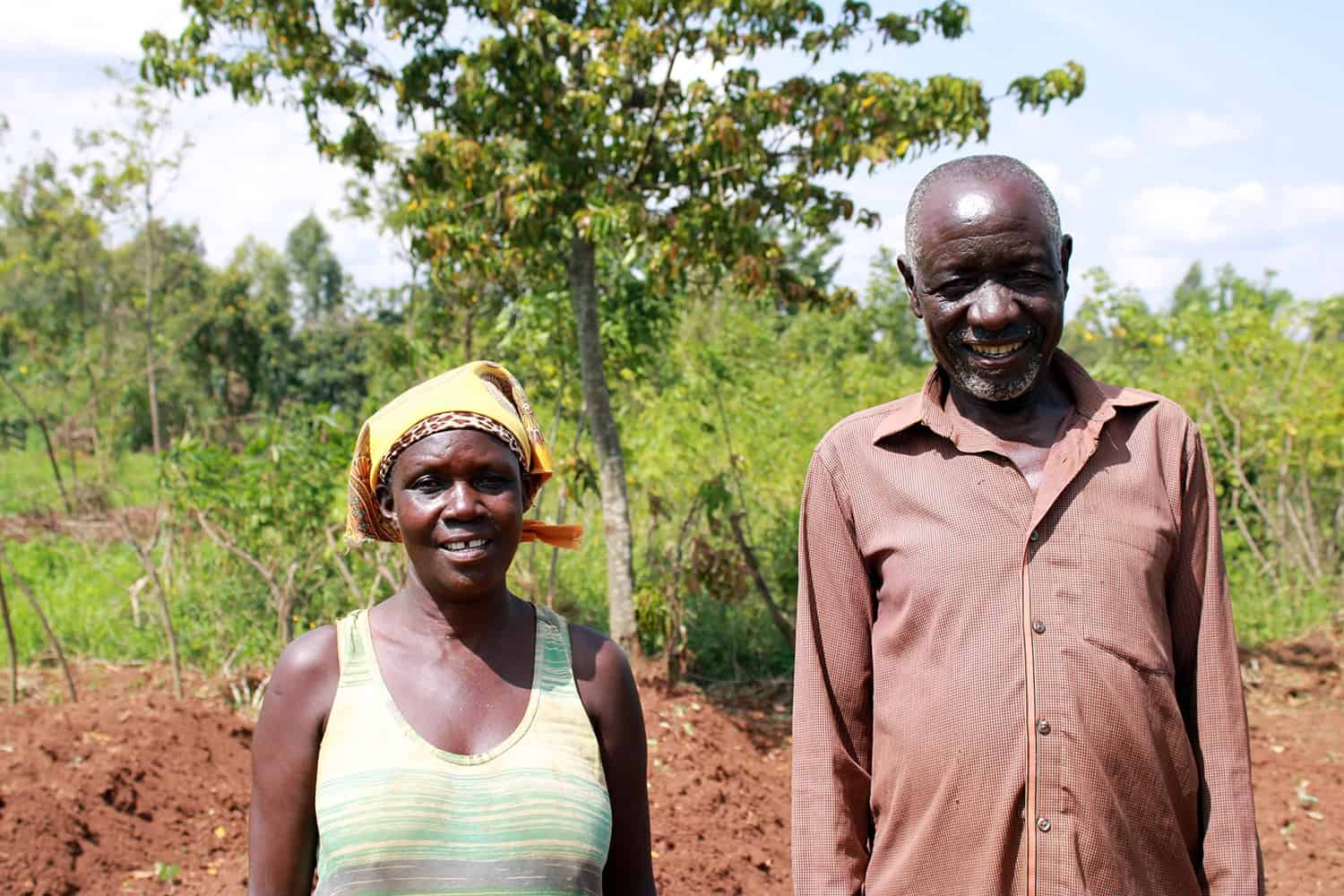Responsible for his wife, his youngest three children, and two grandchildren, Zedrack did not want to let his family down. In March, he joined Trees for the Future’s Forest Garden training program, hoping to be able to provide regular food and income for his household.
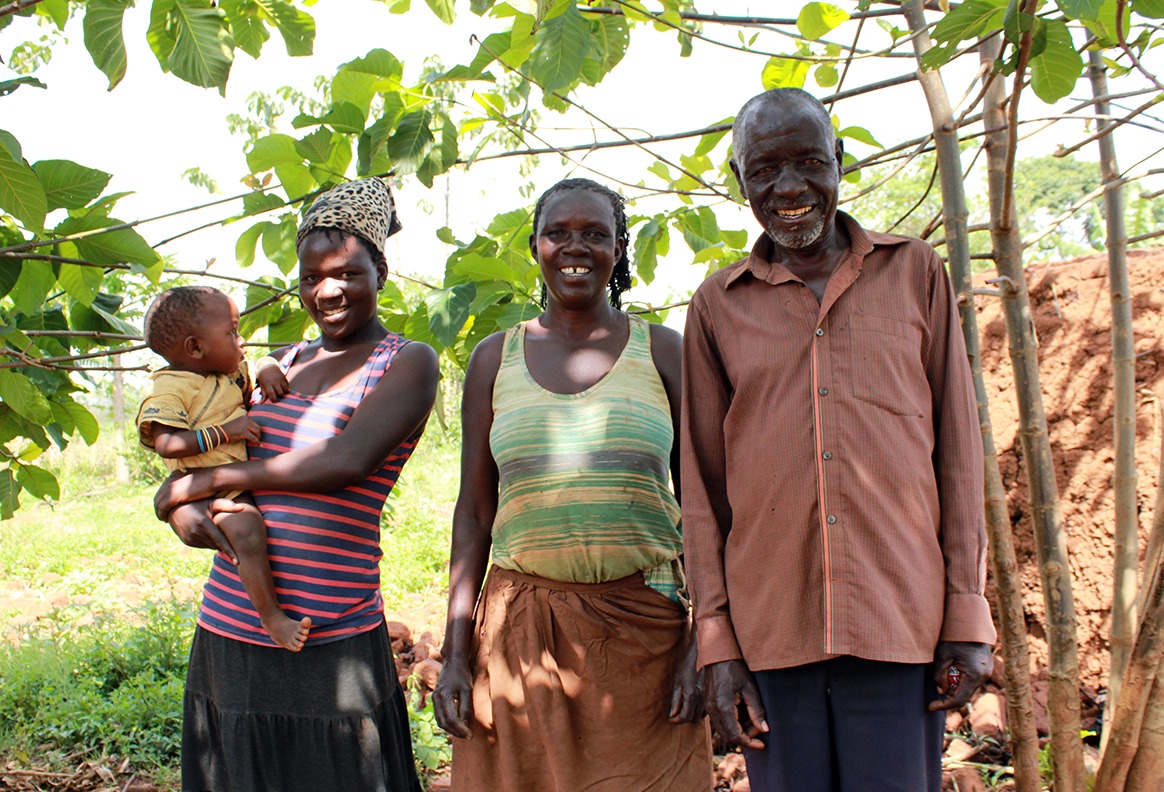
Local Trees for the Future staff work with farmers like Zedrack over a four-year period. Farmers receive seeds, resources, and training to restore their degraded land and diversify what they grow, eat, and sell. The average Forest Garden farmer grows dozens of fruit and vegetable species and typically has more than 2,500 trees living in their one-acre Forest Garden by the end of the program.
“I already see a big difference in my garden since I joined the project,” he says.
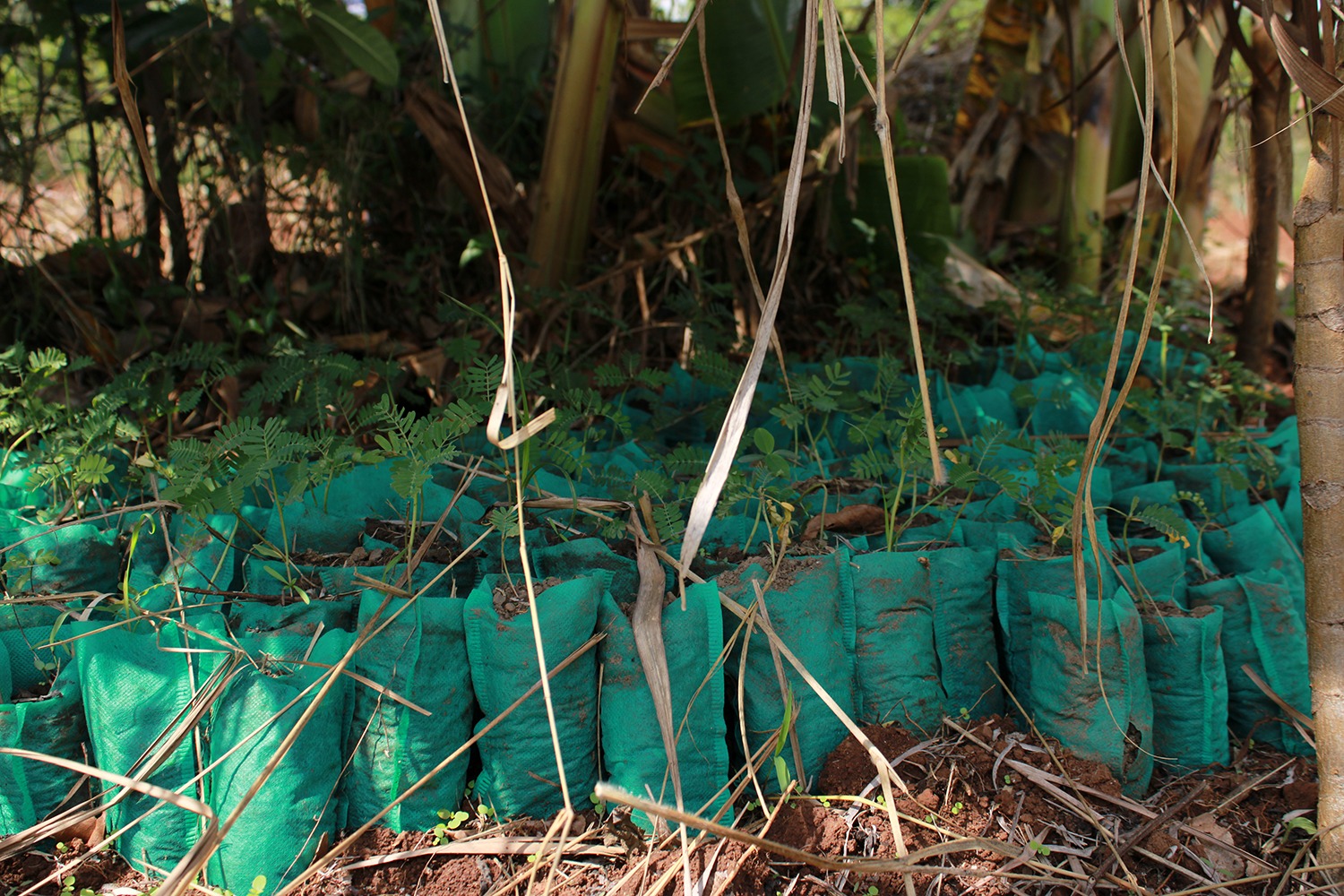
The First Harvest
Zedrack recalls the tomato and collard green seeds he received early on in the program. From the tomato harvest, he bought a calf and materials to put a roof over his family’s bathroom. From his collard greens sales, he managed to get his son back in school.
“What makes me happy about this way of farming is that the returns come early, you don’t have to wait for long to yield from the garden. You can harvest your vegetables within just 3 months,” he says.
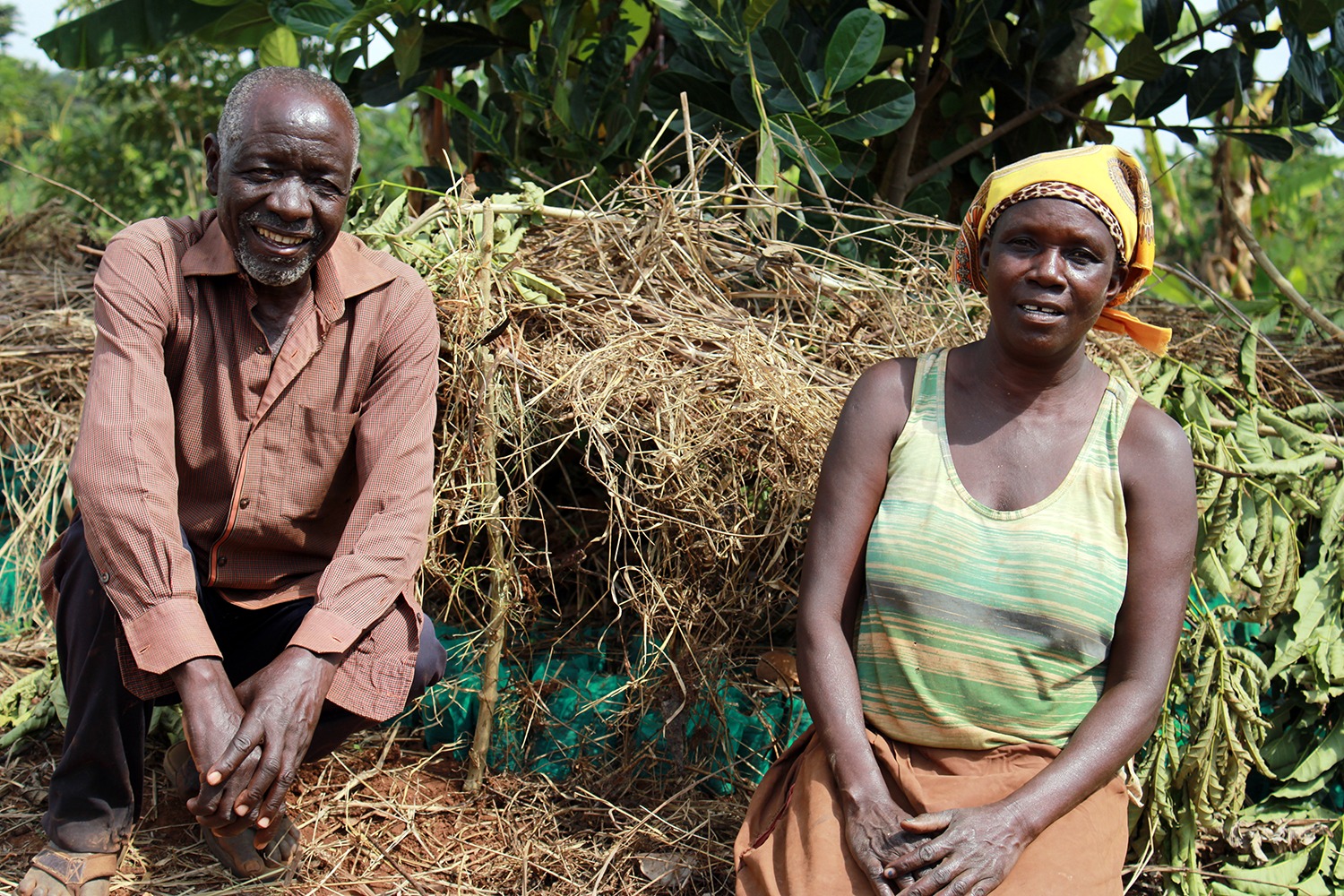
Ensuring Long-Term Success
As their immediate access to income and nutrition improves, farmers are also ensuring their long-term success. Staff teach farmers to use low and no-cost techniques on their land to protect and improve the soil and biodiversity. Instead of turning to expensive and harmful chemical fertilizers, Zedrack can lean on his own resources and knowledge.
“I have learned so many new things about how to farm on my land – like making my own compost – that I did not know before,” he says.
Today, Zedrack is managing a diverse mix of food and resource crops on his thriving land. He and his wife have even started a spear grass crop on a separate piece of land. The common roofing material can be harvested every three months.
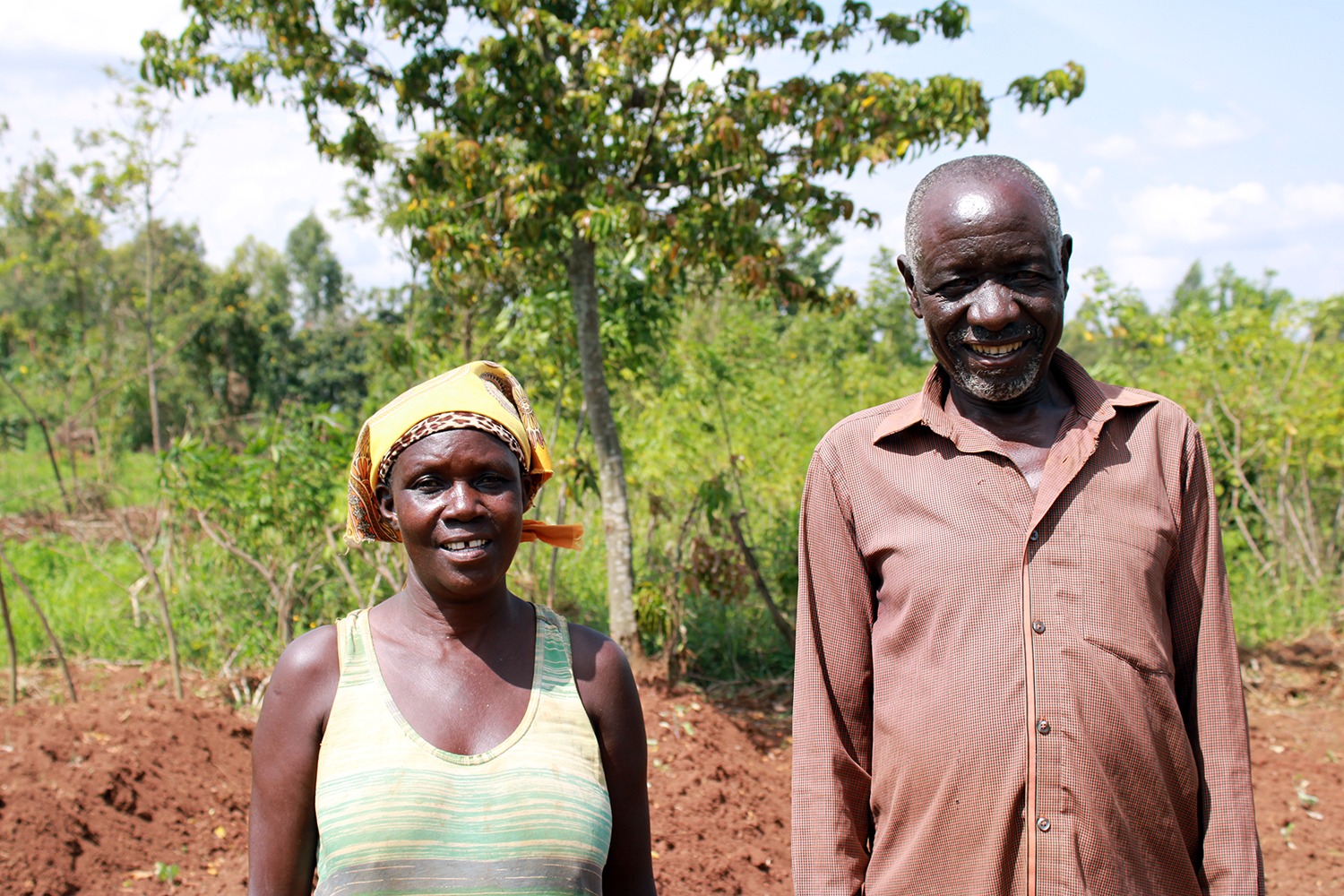
With his family well-fed and his children in school, Zedrack says he’s passing on his newfound knowledge to everyone else.
“It has brought us together as a family because now we tend to the garden together,” Zedrack happily remarks.
Help provide training and resources to farmers like Zedrack. Donate to Trees for the Future today.
